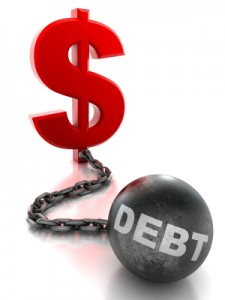
1. Evaluate the amount of money you owe – Prior to starting to pay your debts, you must know and determine the amount of what your debts total. The most effective way to find this out is to build an itemized list noting all your debts as well as the most important information regarding each particular debt. You should figure out what expenses have the highest rates and make these a top priority to pay off first.
2. Avoid increasing the amount of debt that you already have – If you are having difficulty paying off existing debt refrain from gaining new financial obligations. Implement savings practices to be able to make payments which are due in a time frame greater than one month, for example certain bills require payment every three months. Get into the habit of putting the money aside for paying it when it does come due.
3. Reduce your expenses – Lower them by creating a budget and following through on sticking to it.
4. Do not use credit cards instead pay with cash – Unless you have paid off your debt in total, credit cards should only be used for emergencies. Make it a habit to use cash for transactions.
5. Always prepare a shopping list – Make a list of the items that you need to buy in advance of shopping so you know what you plan on spending. Small step like this can help eliminate debt faster.
6. Create a strategy to meet you expenses with your income – Use a monthly plan and you will be aware of the money you have available for spending and the money you need for bills. If you happen to have extra money, use this to pay your bills, this will help eliminate debt faster and save on interest charges.
7. Use negotiation strategies – Alleviating debt and being able to pay of your loan can include an element of negotiation. Find creditors with lower rates to transfer your debt over to but be careful of flat rate fees. The average is a 3% fee for transferring debt. You may be able to renegotiate terms with your existing creditor. A simple phone call can help you save a lot of money in interest payments. Tell them that you have been offered a lower interest rate and are considering switching.
8. Always decide whether you really need to purchase or not before you buy – Many people buy things that they simply do not need. By budgeting you will become used to being financially conservative. Your purchases will slow down and you’ll be able pay off debt even faster.
9. Do not miss payments or incur extra fees for bad debt – If you miss too many payments you’ll add up to 60% more fees and additional interest on your existing debt. Paying the minimum payment on a debt that’s gone bad will add years and years of payment time onto the debt. High interest credit cards are bad debt and should be paid off quickly. Payday loans are particulary harmful and have APRs in the high double digits. You will be far better off if you don’t get yourself involved with any level of bad debt in the first place.
10. Buy a used car – Cars are generally a bad investment. Purchase a used car to use for a long period of time and take care of it.

